How Long Do Cats Live? Tips to Extend Your Cat’s Life
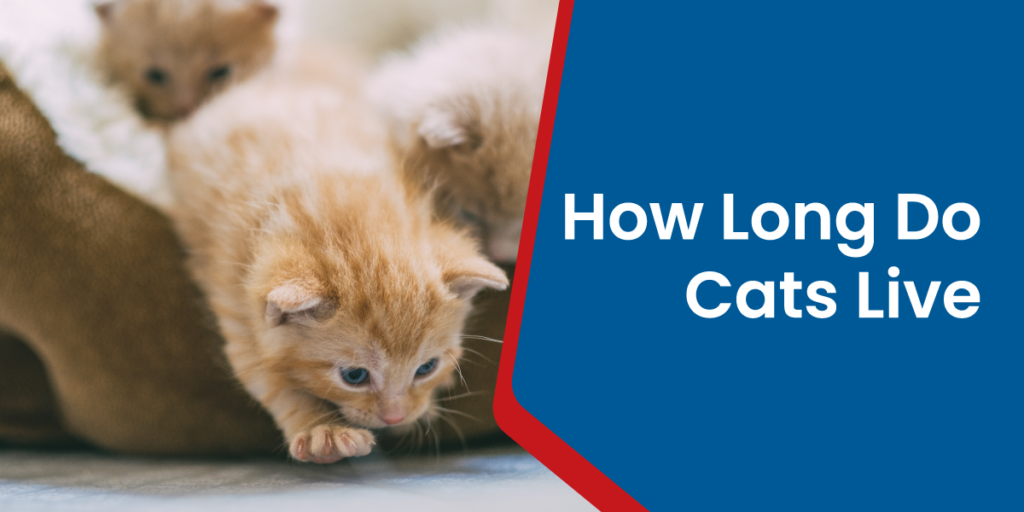
You love your cat and want them to live a long, happy life. But how long do cats live? Some live over 20 years, while others don’t make it past a few years. Why? The answer depends on care, health, and lifestyle.
Indoor cats usually live much longer than outdoor cats. A good diet, regular vet visits, and a safe home can add years to their life. Even small changes, like feeding better food or keeping them active, can make a big difference.
You want your cat to stay with you for as long as possible, right? The good news is—you can help! Simple choices, like keeping them indoors and watching their weight, can add years to their life.
So, what’s the secret to a long cat life? Let’s break it down step by step.
By the end of this guide, you’ll know exactly how long cats live and how to keep your cat happy, healthy, and by your side for many years!
Average Lifespan of Domestic Cats
So, how long do most cats live?
| Cat Type | Average Lifespan | What It Means |
| Indoor Cats | 15–20 years | Live inside homes. Safe from traffic, predators, and bad weather. |
| Outdoor Cats | 2–7 years | Roam outside. Face risks like cars, fights, and diseases. |
| Mixed Breed Cats | 14–20 years | A mix of breeds. Have stronger genetics and fewer inherited health problems. |
| Purebred Cats | 10–15 years | One breed only. Some breeds have specific health issues that may shorten their lifespan. |
| Exceptional Cases | Some cats live 30+ years! | Some cats live much longer with great care and good genes. |
Factors That Affect Cat Lifespan
Several factors can affect how long your cat will live. Let’s check those out:
Genetics
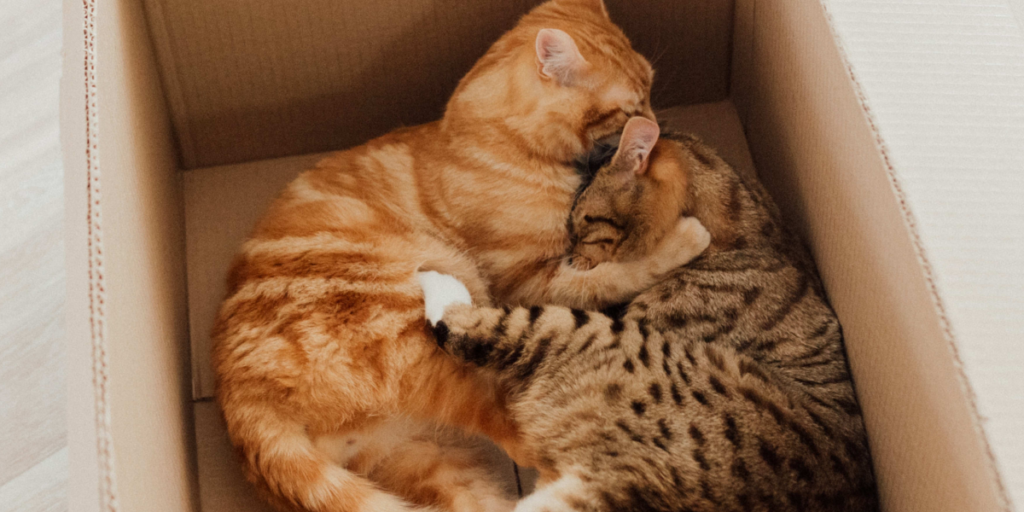
Cats come in all shapes and sizes. Mixed-breed cats (cats that aren’t one specific breed) tend to live longer than purebred cats. Why? Mixed breeds are often healthier because they don’t have the same genetic issues that some purebred cats might have.
Gender
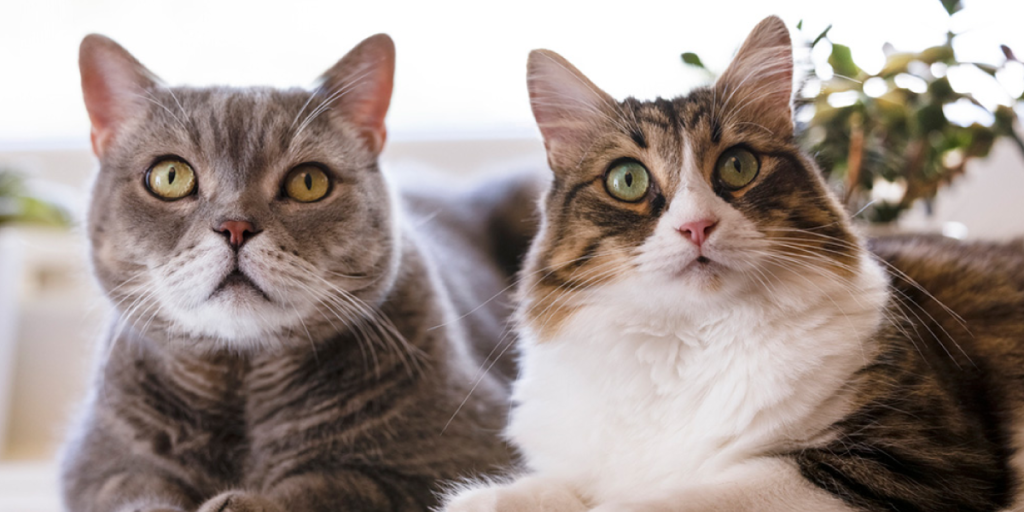
Female cats usually live longer than male cats. This happens because female cats are less likely to get into dangerous situations like fights or wandering around outside, which can shorten their lives.
Weight

Just like with people, obesity has a huge role in cat life expectancy. Overweight cats have more health problems. They can develop diabetes, heart issues, and joint problems. Keeping your cat at a healthy weight can help them live longer and feel better.
Medical Care
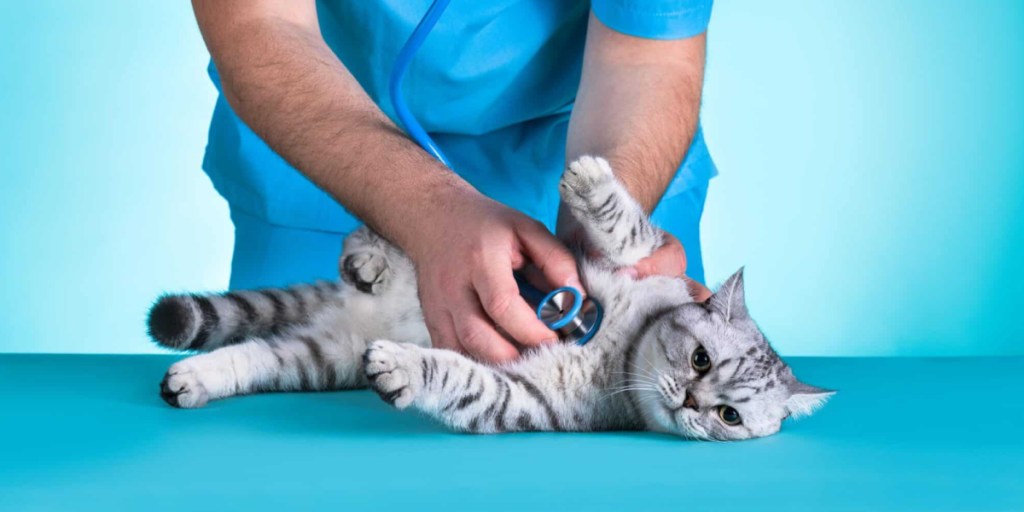
Regular vet checkups are really important. If your cat gets checked often, the vet can catch health problems early when they’re easier to treat. Vaccinations and healthy food also help your cat stay strong and live longer.
At Vet Venue, we keep your pet safe with customized vaccination plans. Our team ensures your pet gets the right vaccines at the right time, protecting them from preventable diseases.
We provide services mainly in Dhaka, Bangladesh, and make sure the whole experience is comfortable and stress-free for your furry friend.
Breed-Specific Lifespan
Since we’ve learned that each breed has a different lifespan, let’s take a closer look at the details of each breed.
| Cat Breed | Lifespan |
| Persian | 12–17 years |
| Siamese | 15–20 years |
| Maine Coon | 12–15 years |
| Bengal | 12–16 years |
| Sphynx | 13–15 years |
**Calico and black cats can live up to 20 years, but their lifespan depends on their breed.
Life Stages of a Cat
Cats go through six life stages. Each stage has different needs.
Kitten (0–6 months)
This is when your cat grows quickly. They’re learning everything—like how to socialize and play. Kittens are super curious and energetic.
Junior (6 months–2 years)
At this stage, they reach their full size. They are still playful but starting to become more independent. They have a lot of energy and love to explore.
Prime (3–6 years)
This is when cats are at their healthiest and most active. They are strong, energetic, and often in their best shape. They don’t need as much attention but still enjoy playtime.
Mature (7–10 years)
Your cat’s metabolism starts to slow down. They may gain a little weight and sleep more. They’re still healthy but may start slowing down in terms of energy.
Senior (11–14 years)
Cats in this stage might begin showing minor health issues. They may move slower and need more rest. But they can still enjoy life if cared for properly.
Geriatric (15+ years)
When cats get this old, they need a lot more care and attention. They may have health problems that require extra monitoring. It’s important to take them to the vet more often and provide them with comfort.
What are the Common Aging Signs in Cats?
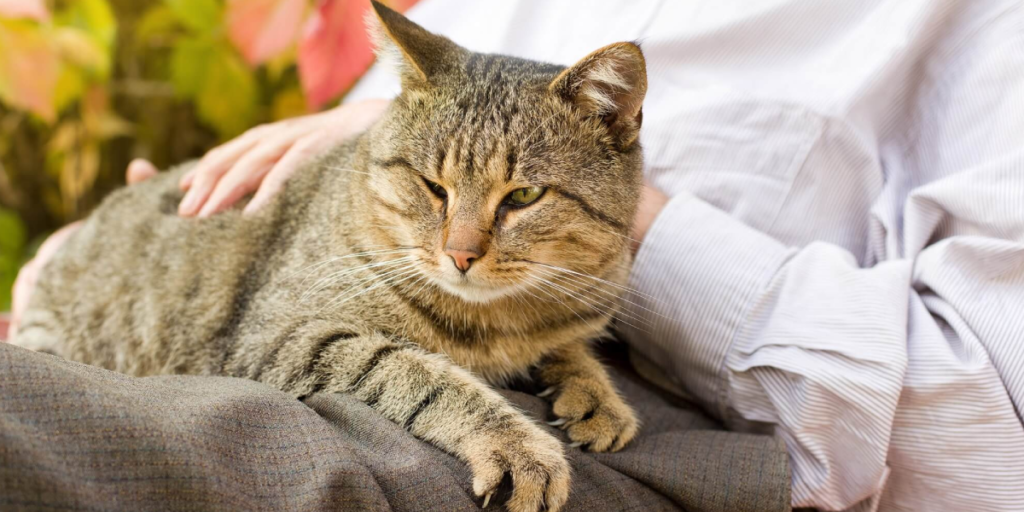
As your cat gets older, you might notice some changes. Here are some common signs of aging:
Dental Issues
Older cats can have bad teeth, just like us. This makes it hard for them to eat. They might avoid certain foods or not eat as much because their teeth hurt. If this happens, it’s a good idea to see the vet.
Arthritis
Arthritis is common in older cats. This means their joints hurt. They may have trouble jumping or walking like they used to. You might notice them avoiding stairs or being slower to move around. If this happens, your vet can help manage their pain.
Weight Loss
As cats age, they can lose muscle. This is called sarcopenia. It can make them look thinner or weaker. If your cat is losing weight, it’s important to check with the vet to see if it’s something serious.
Grooming Changes
Older cats might groom less. This could be because they feel pain in their joints or teeth. They might not be able to reach certain areas to clean themselves. If you notice this, you may need to help them out with brushing.
How Aging Affects Nutrition in Cats
Older cats eat less because:
- Their teeth hurt.
- They lose their sense of smell.
- Their digestion slows down.
Solution? Give them soft, high-protein food made for senior cats.
Major Causes of Cat Mortality
These are the top reasons cats pass away:
| Cause | Percentage of Cases |
| Trauma (accidents, falls) | 12.2% |
| Kidney Disease | 12.1% |
| Cancer | 10.8% |
| Non-Specific Illnesses | 11.2% |
Indoor cats avoid many risks like car accidents and predators.
Myths About Cat Aging & Lifespan
There are a lot of myths about how long cats live and how they age. Let’s clear them up!
“Cats have nine lives.”
This is just a myth. Cats don’t have nine lives. They can live a long time, but their life depends on how well they are cared for. Proper care, good food, and regular vet visits help them live a longer, healthier life.
“One human year equals seven cat years.”
This is also not true. It’s a simple idea, but it doesn’t work well for cats. Cats age faster when they’re young, so the “seven years” rule doesn’t fit. There’s a better way to figure out a cat’s age in human years.
Here’s a better formula to understand a cat’s age:
For cats older than 2 years:
(4 × cat’s age) + 16 = Human Years
So, let’s break it down:
| Cat’s Age | Human Years |
| 1 | 15 |
| 2 | 24 |
| 10 | 56 |
So, cats age faster than we do, especially in the early years. Knowing this helps us understand how quickly our cats are growing and how we can care for them at each stage.
Record-Breaking Oldest Cats
Some cats live much longer than we expect! For example, Creme Puff holds the Guinness World Record for the oldest cat, living an amazing 38 years and 3 days.
Another cat, Flossie, was born in 1995 and is still alive in 2025, showing that some cats can really defy the usual lifespan and live well beyond expectations!
How to Increase Your Cat’s Lifespan
Want to know what percentage of cats live to 16 or even 20 years? With proper care, a significant number of cats can reach these ages.
Key Tips for a Long Cat Life
Healthy Diet
- Choose high-quality cat food that meets your cat’s nutritional needs. Look for options with protein, vitamins, and minerals.
- Avoid feeding your cat too many treats or table scraps. Stick to a balanced meal plan.
- Vet Venue offers cat food tailored to different life stages.
Regular Vet Checkups
- Take your cat to the vet at least once a year for a full checkup. Regular visits help catch any health issues early, like kidney disease or dental problems.
- Example: If your cat starts losing weight or acting differently, a vet visit can help diagnose issues like thyroid problems or arthritis.
Neutering
- Neutering your cat (spaying or castrating) lowers the risk of certain diseases, like uterine infections in females or testicular cancer in males.
- It also reduces the urge to roam, which can keep them safe from accidents.
- Example: Neutered cats often have fewer health problems, live longer, and don’t contribute to overpopulation.
Safe Environment
How long do indoor-outdoor cats live? Outdoor cats have a much shorter lifespan (2–7 years) due to accidents and predators, while indoor cats can live 15+ years.
Mental & Physical Stimulation
Play, scratching posts, and interactive toys help keep them active.
Wrapping Up
So, coming to this point, we can hope that you have got the right answer to your question, “How Long Do Cats Live?” To sum it up, cats can live long, happy lives with the right care. Their lifespan depends on factors like breed, health, diet, and environment. By providing regular vet checkups, a balanced diet, and a safe, loving home, you can help your cat live well into their senior years.
Remember, whether they’re a playful kitten or a wise senior, each stage of your cat’s life is special. Keep them healthy, and they’ll be your loving companion for many years to come!
| FAQs How long do most indoor cats live? Most indoor cats live between 12 and 18 years. Some can even reach their early 20s. The oldest cat ever, Creme Puff, lived an incredible 38 years. What is the 3-3-3 rule for cats? The 3-3-3 rule helps cats adjust after adoption. In the first 3 days, they may hide and feel stressed. In the next 3 weeks, they start exploring. By 3 months, they build trust and feel more at home. Can cats live for 30 years? Yes, some cats can live for 30 years, although it’s rare. The average lifespan is around 14 years, with some cats living between 9 to 17 years. There have been reports of cats living even longer than 30 years! Do cats have 7 lives or 9 lives? Cats do not have 7 or 9 lives. The idea of cats having “nine or seven lives” is just a myth. It’s an old story that people have believed for a long time, but cats only have one life, just like any other animal. How long do cats live on average in the wild and at home? Indoor cats usually live between 12 and 18 years, sometimes even longer. Outdoor cats, however, live much shorter, around 2 to 5 years, due to dangers like traffic and predators. What percentage of cats live to 20? Only a small percentage of cats live to 20 years or more. It’s estimated that less than 10% of cats reach this age, as most cats live between 12 and 16 years. What percentage of cats live to 16? It’s estimated that about 20-30% of cats live to 16 years or older. While many cats live to their early teens, reaching 16 is a good sign of a healthy cat. What vaccinations are essential for maintaining a cat’s long-term health? Essential vaccinations for cats include rabies, FVR, FCV, FAP, and FeLV. These vaccines protect against serious diseases like rabies, respiratory infections, and feline leukemia. What are the benefits of using a harness and leash for cats? Using a harness and leash lets cats safely explore outdoors, get exercise, and enjoy mental stimulation. It strengthens the bond between you and your cat and helps improve behavior. How can a cat’s sleeping habits indicate potential health concerns? Changes in a cat’s sleep, like sleeping too much or too little, can signal health issues like pain or illness. Sleeping in unusual positions may also indicate discomfort or anxiety. |